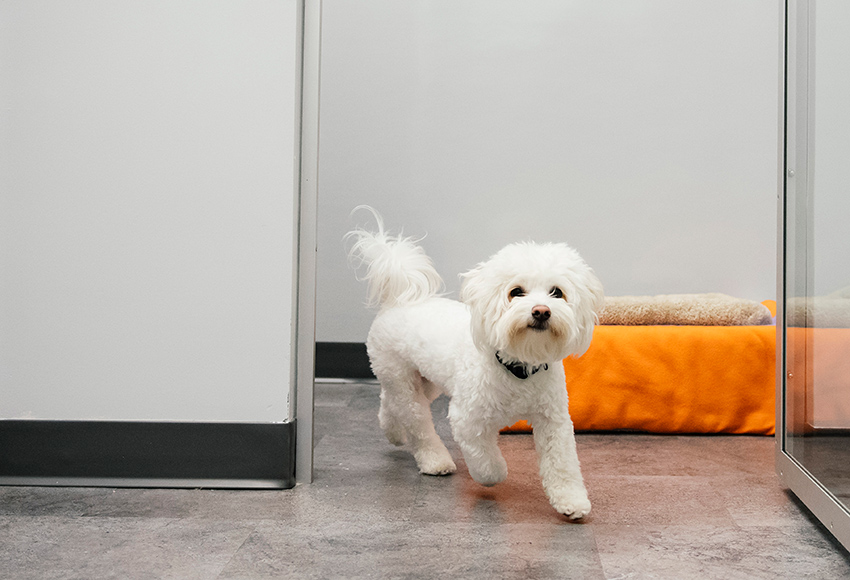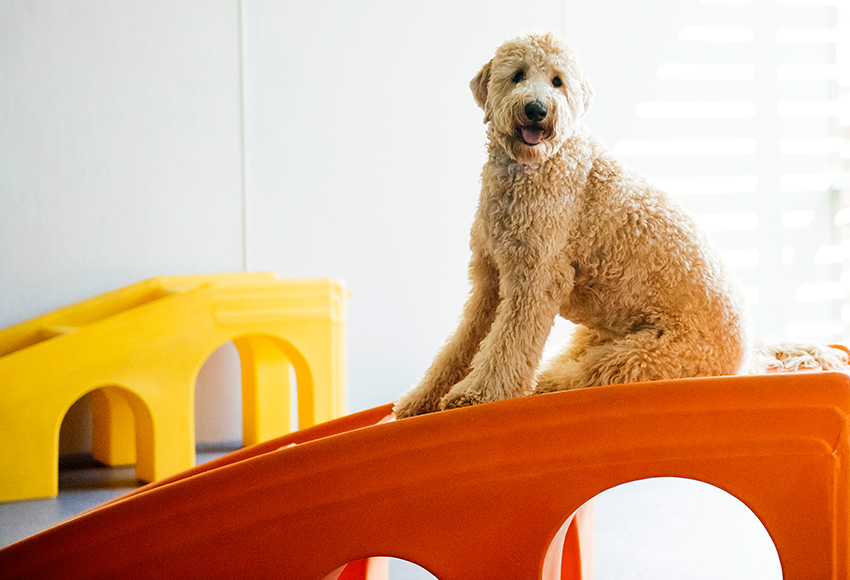October’s Article: Common Misconceptions About Raising a Puppy

Common Misconceptions About Raising a Puppy
By Chelsea Kun
More than two million puppies get forever homes each year in the U.S., which includes two million new parents who are navigating raising a fur baby.
While it is a joy having an adorable, happy puppy in the household, it requires training, consistency and patience. Puppies enter the world only knowing what they know based on instinct, so it’s up to the parents and necessary trainers to teach them otherwise. Some parents stick with the basics — sit, stay, down, etc. — and others dive in further.
Since millions of pup parents each year are raising and training their puppies, people are bound to learn misconceptions. Never fear — we’re here to debunk them!
Here are common misconceptions made about raising a puppy.
1. Misconception: Human socialization is enough for puppies
When it comes to socialization, many pet parents feel that as long as their pup is meeting other people, they are socialized enough. While it is healthy for puppies to have many, positive interactions with humans, socialization with dogs is equally important.
Dogs go through a few stages of mental growth in their puppyhood alone, and the time between four and eight months is when they develop the most in a cognitive and mental sense. So, as long as your pup has received the necessary vaccinations to protect them, starting socialization with other dogs at around three or four months old is ideal.
Many people start with puppy kindergarten, which is a training program where puppies socialize and train with each other. This is a great start and a way to ease a young puppy into socialization, but while they’re still in the puppy stage, it’s also necessary for your dog to interact and learn boundaries from older, experienced dogs. A daycare is an excellent setting for this to happen.
2. Misconception: Puppies do certain behaviors out of spite
Spite is a complex concept, and dogs’ emotions are simpler than that.
Many owners will leave their dog or puppy home alone only to find that they destroyed something. Their first thought might be the pup was mad because they were alone, which is not true.
A puppy is active much of the time and needs stimulation, so when left alone, they will find something to occupy themselves. That might involve chewing and digging in unfavorable places, but it’s not out of spite; it’s simply out of boredom.
The best way to prevent this is to create boundaries as to where your puppy can go. Put a playpen in a room with a bed, blanket and some toys that will be safe for your pup to have by themselves. The toy aspect is important as it will occupy them.
If it’s still an ongoing problem or if your puppy is escaping the playpen, arrange for someone to dogsit them or consider trying out daycare. Having other pups to play with is proven to cure boredom!
3. Misconception: Certain breeds are untrainable
Many people who are thinking of adding a fur baby to their family will forgo certain breeds that they think are stubborn, not “smart,” or simply untrainable.
It’s important to note that there is no such thing as an untrainable dog — it all depends on the breed and how you go about it. There are breeds that are generally easier to train, such as those in the herding group (border collies, Australian shepherds, Shetland sheepdogs, etc.).
Some breeds tend to require more repetitions when it comes to commands and therefore more patience, but the key to training all dogs, no matter what, is consistency.
Also, it’s important to note that most dogs are food motivated, which helps when it comes to training dogs who might need more patience and repetition. Not all dogs are, but dogs are usually motivated by something, whether it’s toys or simply exclaiming “good boy/girl!” and scratching them behind the ears.
Test what works best for you and your pup!
4. Misconception: You are the “alpha”
This idea of an “alpha” between dogs and in dog ownership was created with the notion that wolves operate in a hierarchy, and that wolves fight amongst each other to gain this title. However, modern research scientists find this idea misleading, and the International Wolf Center has stopped using it.
Ethologists now recognize that wolves operate like a family, and its pack leaders are usually the wolves who mate and have pups. Think of the so-called “alpha” as a parent and less like a dictator.
This is exactly the attitude a dog parent should have when raising a puppy. Puppies should have structure when it comes to house-breaking and training with balanced love, comfort and compassion that a parent may give their child.
Naturally, a puppy will look to humans for guidance, and it is up to the parents to establish structure early on with this in mind. Structure does not mean dictatorship.
5. Misconception: Crate training is cruel
Let’s talk more about wolves; they are den animals that seek comfort from such environments. Puppies usually have this instinct, and as they grow up they may find comfort in a crate.
Just like any form of training, correctly using it is key. Help your puppy to see it as a comfortable spot, like it’s their “den.” Put a blanket or a chew toy in their crate. While you’re home, open the crate door and let them go in and out as they please.
Also, make sure the crate is the correct size for them; measure to ensure there’s several inches between their ears while standing up and the top of the crate.
Not all owners will need to use crate training depending on their lifestyle. Consider purchasing a crate anyway and introduce your pup to it a few times. You never know: there might be a time where they need to go in a crate.
***
Puppies have so much to learn from humans and vice versa; recognizing misconceptions such as these, doing your research, and learning the best training methods for your puppy will ensure a happy pup and parent.
https://www.directanimal.com/dog-kennel-tips/common-misconceptions-about-dog-crate-training/ https://wolf.org/headlines/44265/#:~:text=It's%20a%20term%20that%20started,stopped%20using%20the%20term%20altogether. https://www.thepuppyacademy.com/blog/2020/8/3/debunking-common-puppy-training-myths https://www.whole-dog-journal.com/puppies/pre_puppy_prep/properly-socializing-your-puppy/ https://www.coddled-critters.com/what-if-my-dog-is-untrainable/#:~:text=First%20off%2C%20there%20is%20no,you're%20willing%20to%20invest. https://www.petcoach.co/article/6-myths-about-puppies/ https://dogforwardtraining.com/5-puppy-training-misconceptions/





